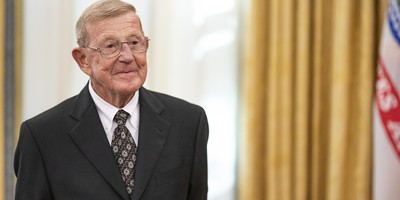As Americans suffer the coronavirus pandemic, the economy is in a precarious state and unemployment has reached levels not seen since the Great Depression. It is a time to reconsider some policies relating to taxation and labor that will alleviate the effects of the disruption to the economy.
What changes in national policy are needed after the deficiencies revealed by the coronavirus? Here are some suggestions:
1. Much of the relief given has redounded to the benefit of the already prosperous. Some close to the administration have suggested that the cure for this is to be found by relieving workers of the payroll tax, at least temporarily. The 7.65% social security and medicare taxes, applying to both employers and employees, are effectively a 15.3% tax on wages. When the taxes were much lower than they now are, Senator Robert Taft taunted the Democrats by saying that whenever they wanted to raise serious money, they resorted to regressive payroll or production taxes. Repeal of the taxes is not in the cards; it would balloon deficits and attack old age pensions and medicare. But person under 25 should be relieved from them, as is done directly in Poland and Croatia and, less directly, in Germany and The Netherlands. In the latter countries, the youth unemployment rate is actually less than the general unemployment rate. In the United States it is much higher, and the disturbing statistics do not include those who have dropped out of the labor force or never joined it and those in prison or whose ‘education’ is but a fiction.
2. Plant-level labor organizations should be legitimized and the ban on ‘company unions’ relaxed so as not to automatically embrace all employee groups meeting on the employer’s premises. This was proposed by the Dunlap Commission on labor-management relations appointed by two of President Clinton’s cabinet officers. A TEAM Act proposed by it was vetoed by President Clinton at the behest of national industrial unions that have since lost four-fifths of their membership. Thus there is now major unrest among the proletarianized non-union work forces of companies like Wal Mart, Amazon, and Target. This condition cannot be allowed to continue. William Howard Taft as co-chairman of the War Labor Board in 1917 fostered building-level employee representation organizations which enrolled millions of workers and were the precursors of later conventional unions. Former President Taft and his son Robert, always protected plant-level organizations which could negotiate work schedules and productivity deals. Free trade limits the possible gains from national unionism, but the need for plant-level representation has never been greater. One need not sympathize with the political left to also realize that there is a conservative case for an increase in the minimum wage. Where it falls below a subsistence level, government programs like food stamps and medicaid function as a subsidy to underserving employers who have failed to improve the productivity of their workforces.
Recommended
3. America’s state-level teachers unions and their counterparts in the higher education sector successfully strangled the widespread use of distance learning even in a computer age and even though language laboratories had begun to be used in the Eisenhower era. The statutory debris must now be swept away and institutions established like UNISA in South Africa and the Open University in Britain to make remote instruction rather than commuting to community colleges the typical method of vocational and technical learning. It has been suddenly discovered that students lack computers and teachers lack training in the conduct of distance learning.
4. The ‘audit by disease’ has revealed the weakness and inhumanity of America’s tendency to relegate its less affluent elderly to medicaid nursing homes. More than 60% of coronavirus deaths have involved residents in such homes. The increase in deaths of younger persons outside such homes, while greater than that in an ordinary flu epidemic, suggests that concentration of testing, quarantine and treatment efforts on the institutionalized elderly might have obviated the need for much wider drastic shut-downs. No other advanced nation relies on such unsatisfactory institutions to house its elderly citizens. The strategies of Germany and Japan to foster extended family living or at least cooperation through tax credits and zoning dispensations for duplex houses and accessory apartments need to be adopted here; the elderly can no longer be safely zoned into the next county without aggrandizing deaths in epidemics.
5. There is need for major fiscal reform and for an end to the “apoplexy at the center and anemia at the extremities” that Professor Paul Freund of Harvard said was one of the unintended results of the income tax amendment. Interstate competition severely limits state and local recourse to income taxes, even though the costs of labor-intensive educational and social services rise more rapidly than federal spending on materials and defense. The result makes mendicants of governors and under-funds services like public and mental health for which there is no powerful political constituency. The Germans in 1968 and the French in the1980s resolved this problem with important tax-sharing reforms giving regional governments a share of income and value-added taxes revitalizing local and regional governments.
The need to limit the social damage from the present lock-downs is increasingly obvious. Even if and as the economy rebounds, there will be a much larger national debt, and the need for new revenue sources to service it. This provides an opportunity to adopt more broadly based and less complex personal and corporate taxes, while eliminating the burden of payroll taxes on young workers and their employers. Serious reform, and not partisan and ideological trench warfare is needed.

























Join the conversation as a VIP Member